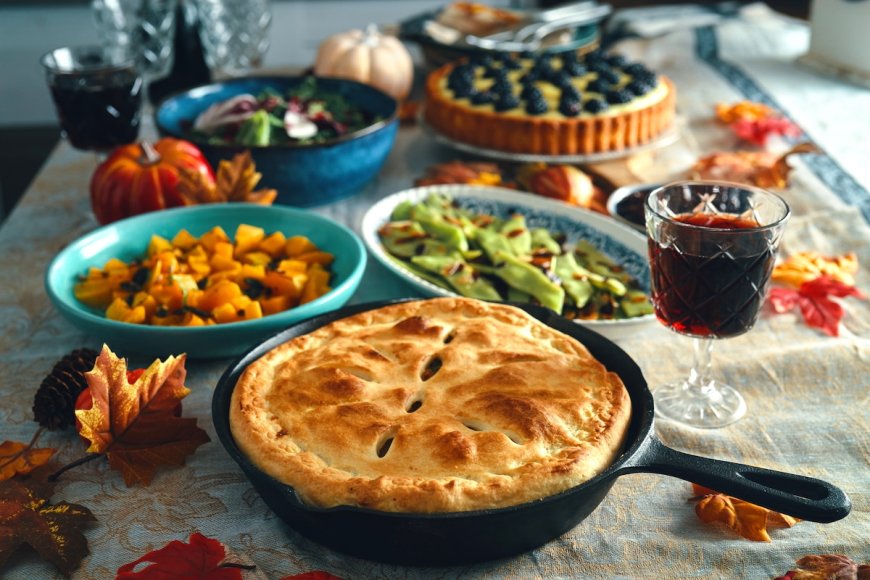Tips From Experts to Reduce Food Waste This Holiday Season
With the holidays in full swing, there are more occasions for eating and drinking to excess, which gives us multiple opportunities to curb our food waste. Food waste is an enormous global problem. According to a 2024 report from the United Nations Environment Programme, households throughout the world wasted an average of more than one […] The post Tips From Experts to Reduce Food Waste This Holiday Season appeared first on EcoWatch.

With the holidays in full swing, there are more occasions for eating and drinking to excess, which gives us multiple opportunities to curb our food waste.
Food waste is an enormous global problem. According to a 2024 report from the United Nations Environment Programme, households throughout the world wasted an average of more than one billion meals per day in 2022. Meanwhile, 783 million people were impacted by hunger and one-third faced food insecurity.
When we waste food, we also waste valuable resources.
“When we throw away food, we’re also throwing away the land, water, and energy used to produce that food,” said Pete Pearson, vice president of food loss and waste at WWF.
Agriculture accounts for almost 30 percent of the world’s greenhouse gas emissions and 70 percent of freshwater use, reported WWF.
“Agriculture is vital for human survival, but its expansion is the leading cause of stress on the last remaining biodiverse regions around the globe. This comes at a time when we grow enough food to feed everyone, and up to 40% of what we grow never makes it to a dinner plate,” Pearson emphasized. “If we can make more food available from what’s already produced — by minimizing waste — we might slow deforestation in the Amazon or preserve the grasslands in the Northern Great Plains.”
When discarded food decomposes in landfills, it also emits methane, a potent greenhouse gas with 28 times the heat-trapping potential of carbon dioxide.
Pearson suggested taking measures to avoid throwing good food away this holiday season by preparing “just enough” food for your guests. Other tips included composting food scraps, encouraging people to take leftovers home, storing leftovers in the freezer for when you’re ready to revisit them and using leftovers to make new dishes.
“If you’re passionate about conservation, consider this: preventing and reducing food waste is one of the best things you can do to conserve natural resources and wildlife,” Pearson added.
Dr. Tara Moreau, University of British Columbia (UBC) Botanical Garden’s associate director, had some additional suggestions for making your holiday festivities more sustainable by reducing food waste.
In a Q & A with UBC News, Moreau recommended eating more plant-based foods that are locally produced, including legumes and millet. If you do plan to eat meat during the holidays, consider reducing the amount and looking for more sustainable options.
Another idea is to share your food with people in your neighborhood who may be spending the holidays alone.
Moreau also suggested freezing vegetable scraps such as carrot ends, herbs and onion skins to make stock for winter soup.
“Composting and recycling are important. But ultimately, we need to consume less. The best place to see your environmental footprint is in your waste footprint. You can see the waste you’re producing every week as well as your purchasing behaviours, which means you can identify how and what to change,” Moreau said.
The post Tips From Experts to Reduce Food Waste This Holiday Season appeared first on EcoWatch.
What's Your Reaction?




































